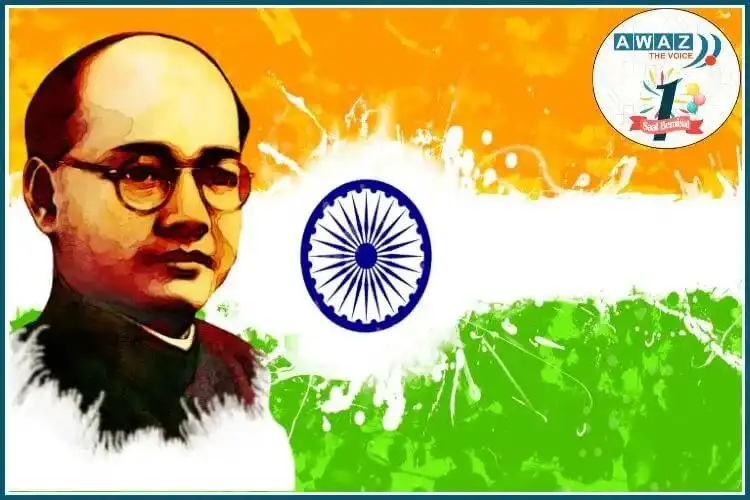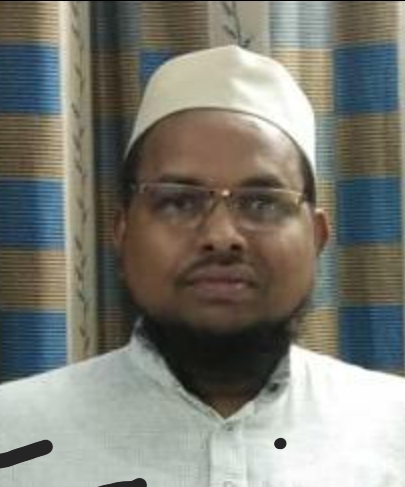
 Obaidur Rahman Nadwi
Obaidur Rahman Nadwi
Netaji Subhash Chandra Bose was born on January 23, 1897, in a Bengali family settled at Cuttack in Orissa. He was the ninth child of Prabhavati and Rai Bahadur Janakinath Bose, a lawyer. After completing his early studies at European Protestant Collegiate School in Cuttack, he came to Calcutta to study at Presidency College in 1913. Once he beat his English teacher for calling Indians inferior. As a result, he was expelled from the college and this incident proved a turning point in his life.
After college, he left for England for higher studies. He qualified for the I.C.S. in 1920 but soon resigned from his job to join the freedom movement. He was bold and fearless; never bowed to or compromised with the British. For this reason, the British Government in India was afraid of him. That is why he was arrested without any charge on October 25, 1924, and sent to Alipore Jail, Calcutta, and shifted to Mandalay, Burma, a year later.
He was released from Mandalay in May 1927 due to his ill health. On return to Calcutta, he was elected President of the Bengal Congress Committee on October 27, 1927.
He never agreed with Gandhi’s policies and programs. Yet, he took part in the Non-Cooperation Movement. But he criticized Gandhi after he called off the movement. Similarly, he participated in the Civil Disobedience Movement of 1930. However, when Gandhiji withdrew this agitation in 1933, he vehemently criticized him for his hostility to modern technology. He declared: “We have to live in the present and to adapt ourselves to modern conditions. The days of the bullock cart are gone forever. Free India must arm herself for any eventuality as long as the whole world does not accept wholeheartedly the policy of disarmament."
By 1937, Subhash Chandra Bose was a name to reckon with across India. He rejuvenated the Congress Party. He was elected President of Congress in 1938. He played a leading role in forming national planning, unity, and organization of the masses for the national struggle. We can only guess his clout in the Congress as he defeated Gandhiji’s nominee Pattabhi Sitaramayya in the election of Congress in 1938.
The Gandhi supporters began to oppose Bose. Consequently, he resigned as Congress party President in 1939. Later on, Bose formed a radical and progressive group within the Congress and it came to be known as the Forward Bloc. As Pandit Jawaharlal Nehru, Subhash was a strong supporter of socialist ideas; he suggested different measures to establish a socialist society.
He suggested the abolition of Zamindari, reduction of the land revenue, and make creating provisions for the rural bank loan. He along with Nehru was the founder of the All India Trade Union Congress to press the government on the demands of the workers.
According to D.N. Kundra, “Because of Subhash’s national zeal and revolutionary ideas, the British Government interned him in his own house at Calcutta in January 1941. He escaped from India in March 1941 and went to Russia for help. But when Russia joined the Allies, he went to Germany. In February 1943, he left for Japan to organize an armed struggle against the English with the help of the Japanese. In Singapore, he organized the Azad Hind Fauj (the Indian National Army) for the freedom of his country. It was helped by Ras Behari Bose, an old revolutionary. He had already organized the Indian Independence League to attain the complete and immediate independence of India.
“Likewise, the Indian National Army had already been formally established in September 1942 with Mohan Singh as its first Commander-in-Chief. After taking the charge, Subhash Chandra became the President of the Indian Independence League as well as the Supreme Commander of the Indian Army. The I.N.A. was joined in large numbers by the Indians living in South East Asia and by the Indian soldiers and officers captured by the Japanese in Burma, Malaya, and Singapore. Netaji, as he was called by INA soldiers, gave a call, “Give me blood and I shall give you freedom.”
“His battle- cry was “Dilli Chalo”. He set up Recruitment and training Departments in INA. He also founded the Provisional Government of Free India in Singapore in October 1943; it was recognized by nine world powers like Germany, Italy, Japan, and Burma. Thereafter, he started his military campaign against the English. The Japanese handed over the Andaman and Nicobar islands to Netaji. He renamed them as ‘Shahid’ and ‘Swaraj’ Islands respectively. Thus, he acquired the first stretch of territory in free India”.
Former Chief Justice B.P. Chakrabarty of Calcutta High Court has rightly said: “When the new version of the history of the Twentieth Century India, and especially the episode of the country's unique struggle for independence comes to be written, it will no doubt single out but one person who made the most significant and outstanding contribution among all his compatriots toward the emancipation of his motherland from the shackles of alien bondage. During World War II this man strode across two continents like a colossus, and the footstep of his army of liberation reverberated through the forest and plains of Europe and the jungles and mountains of Asia. His armed assaults shook the very foundations of the British Empire. His name was Subhash Chandra Bose”.
Subhash is the glory and pride of India. His life is a source of inspiration for us. His selfless service and sacrifice for the freedom struggle of our country can never be ignored. Much confusion and controversy surround the death of Bose. However, he is believed to have died in an airplane crash on his way to Tokyo on 18 August 1945.
(Dr. Obaidur Rahman Nadwi is Faculty, Darul Uloom Nadwatul Ulama, Lucknow)
